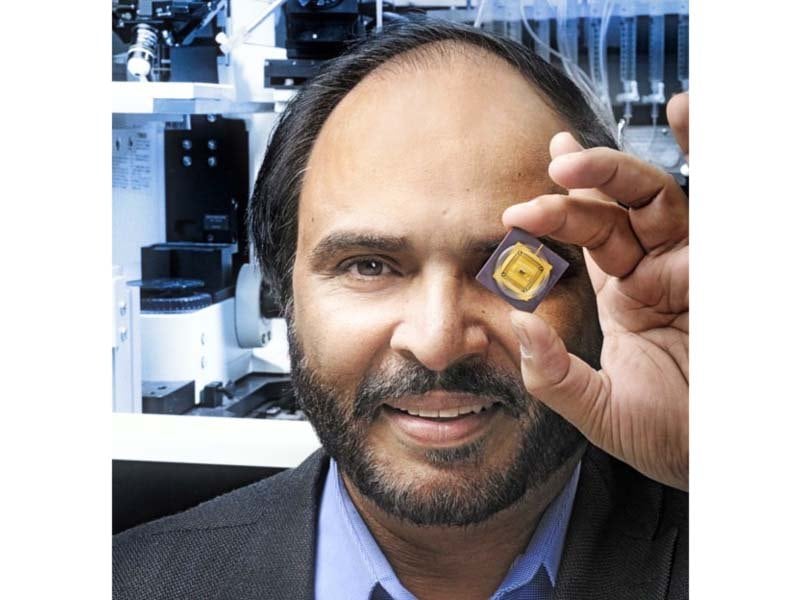Hailing from Attock, a city in Pakistan’s Punjab province, Dr Naweed Syed brought enormous pride to the country with his magnanimous contribution in the field of science by developing first ever brain chip in 2005 that allowed two-way communications between a brain cell and the electronics.
He is a specialist in the field of biomedical engineering and a member of the medicine faculty at the University of Calgary. The 58-year-old enjoys a title of first Pakistani scientist, who has Canadian nationality also, to connect brain cells to a silicon chip, providing a way to researchers to know the communication between a tissue and an electronic device.
Dr Naweed Syed explains his invention as: “It used to be like seeing two people talking at a distance. … You didn’t know what they were saying or even what language they were speaking. But now it’s like putting a microphone beside them”.
The invention by the professor, who is working on developing more devices, helped a major role in treatment of patients suffering from epilepsy, a central nervous system disorder in which brain activity becomes abnormal, causing seizures or periods of unusual behavior, sensations, and sometimes loss of awareness.
The discovery of the chip is a major breakthrough in the research of integrating computers with human brains to help people control artificial limbs, monitor people’s vital signs, correct memory loss or impaired vision.
The revolutionary research had also been featured Times Magazine, the Discovery Channel and other media outlets.
Dr. Syed, whoe obtained his PhD in neurophysiology from the University of Leeds, UK in 1988, has published 130 papers in scientific journals including Nature, Science, Neuron and the Journal of Neuroscience.
Dr. Syed’s lab has pioneered several brain-chip interfacing technologies for which he holds numerous patents, and he is the founding member of a startup company – Neurosilicon.
In 2017, he was conferred with “Tamgha e Imtiaz” by the government of Pakistan and the same year the scientist Senate of Canada 150 Medal”, an award created by the Canadian Senate to recognize the country’s heroes who made a positive impact in their society.
Dr Naweed Syed is the only Muslim scientist to have been identified among 150 Canadians or innovations in 150 years of Canada as “Canadians who changed Canada”; one innovation or innovator was selected for each year of the Canadian history
In addition, he has received numerous awards including the Parker B. Francis Fellowship – USA; Alfred P. Sloan Fellowship – USA; Alberta Heritage Foundation for Medical Research (AHFMR), Scholarship; AHFMR Senior Scholarship; AHFMR Medical Scientist Awards; the CIHR Investigator Award, as well as Fellowship from the Royal Society of Edinburgh, UK. Dr.
Dr Syed believes that medicine and medication is developed for people and patients and that profit comes in the form of service to humanity.









